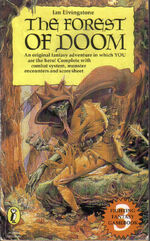
Watership Down
Yesterday I reread it with a more critical eye so I could review it. The book was first published in 1972 and the style reflects this to some extent. Descriptions of the English countryside tend to be lengthy, as do infodumps (and the narrative includes some explanations in parentheses)1. Kehaar’s dialect can be painful—but thankfully it was kept to a minimum, as opposed to the tod’s speech in Adams’s The Plague Dogs
This is still an amazing novel. I could reread it again and enjoy it just as much.
The story starts off simply. Hazel’s younger brother Fiver senses that a great danger is coming to their warren, and they all need to leave. To the Chief Rabbit, this is nonsense, but Hazel trusts Fiver’s intuition and the readers know of the notice-board set up nearby to say that the surrounding land is going to be “developed with high class modern residences”.
Hazel and Fiver decide to leave, and a few other rabbits join them. Of those, Bigwig, so named because of the thatch of fur on his head, is my favorite: he’s blunt, loyal, tough, always ready for a fight and not inclined to respect authority unless that authority accomplishes the near-impossible task of earning his respect. And Blackberry is the clever one of the group—he figures out how to cross rivers by sitting on flat pieces of wood that float.
That’s one of the things I love about this book—the characters are rabbits, not furry humans. They’re small, they’re scared of the unknown and they’re simply not aware of things we take for granted.
Compared to the others, Hazel often comes off as ordinary, but he holds them together, keeps them moving and believes in Fiver’s vision of the safe place they will eventually find. Even when they make a home on Watership Down, he thinks of their future—or rather their lack of one, since they brought no does out of the warren. And that need eventually leads the rabbits to the warren Efrafa, which is ruled with an iron, er, paw by the terrifying General Woundwort.
Few fictional places are as nightmarish as Efrafa, with its Council police and the system of scarring the rabbits to mark and segregate them. The worst is a would-be escapee being mutilated, exhibited to each Mark in turn and forced to repeat, “Every Mark should see how I have been punished as I deserve for my treachery in trying to leave the warren” — with the knowledge that he will be killed once all the Marks have seen him. The infiltration of Efrafa and the escape are only topped when General Woundwort, coldly furious at his defeat, leads an expedition to destroy the Watership Down warren.
Every element in the book works together to hone and enhance a gripping plot. Even the stories the rabbits tell of their trickster god El-ahrairah play a role in the story, and the foreshadowing is brilliant, such as when Bigwig says sarcastically that on the day he calls Hazel the Chief Rabbit, he’ll stop fighting. That day is the last day of the siege of Watership Down.
The book is also self-contained. Unlike a lot of fantasy novels, there’s no trilogy or even a sequel, unless you count Tales from Watership Down
1. Also footnotes.
Tweet






